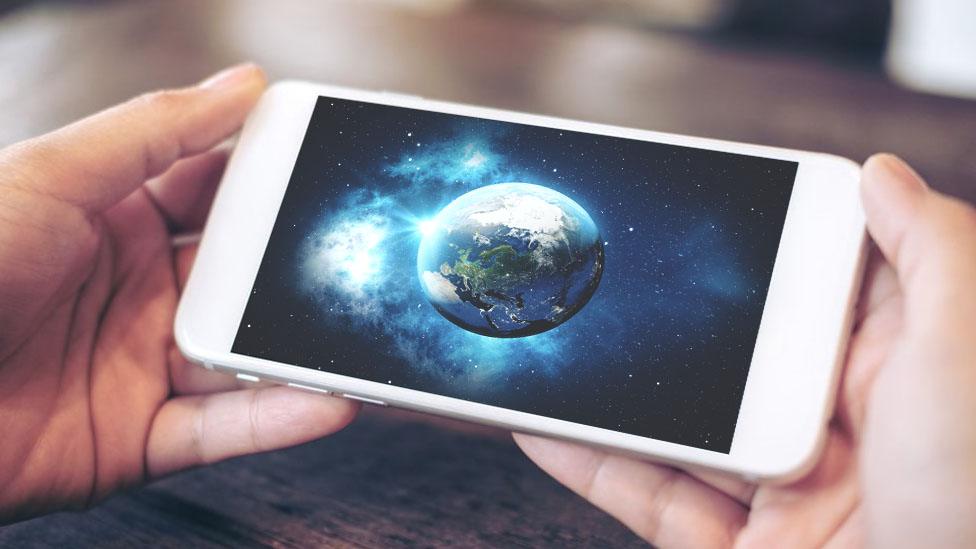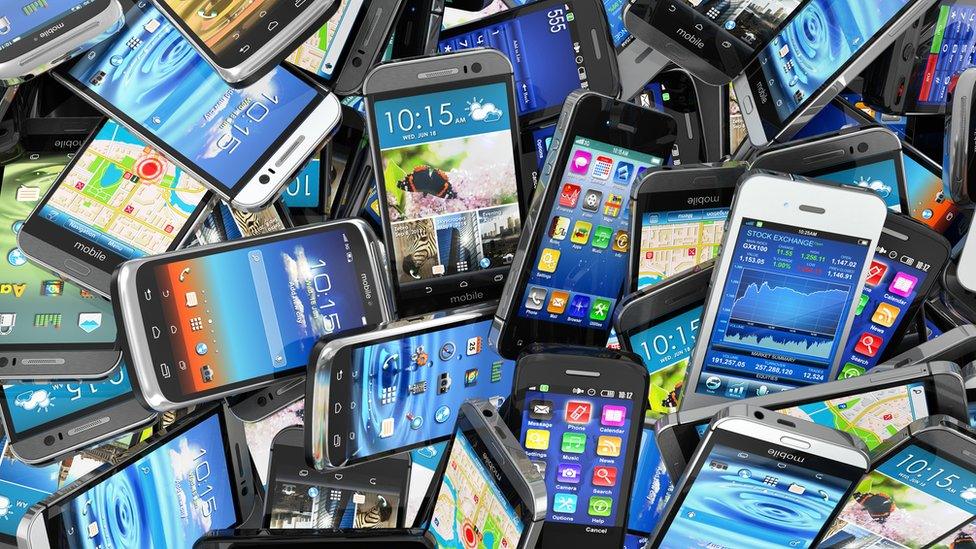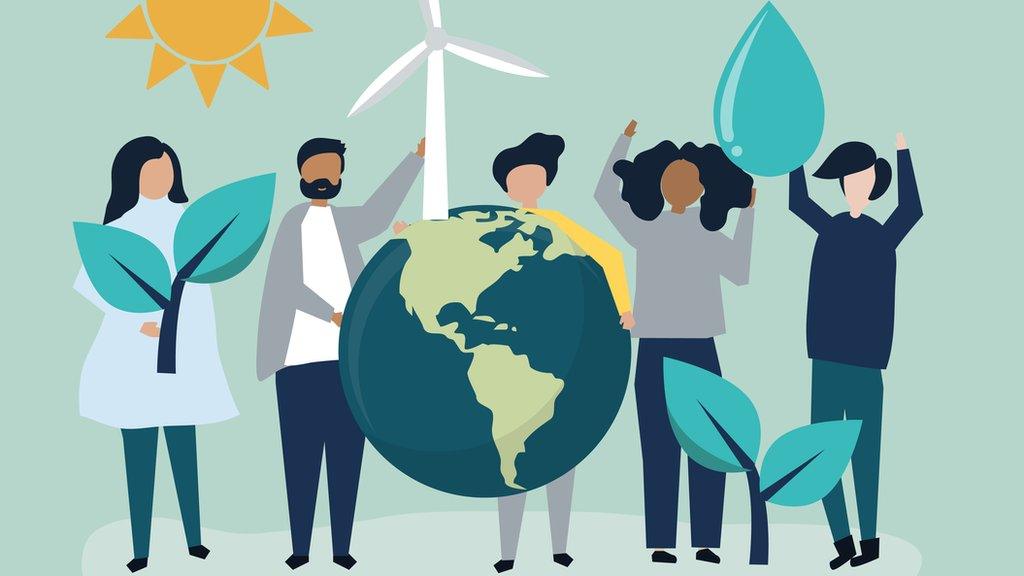Environment: How we use our phones and other tech can help save the planet
- Published
- comments

Keeping your phone for longer and changing the way you stream music and video could help save the planet, according to a new report.
Scientists at the UK's Royal Society say that watching videos in HD on a phone generates about eight times more in harmful greenhouse gasses than standard definition (SD).
That's because each of the activities you perform online comes with a small cost - a few grams of carbon dioxide are emitted due to the energy needed to run your devices and power things like the music you listen to or video that you watch.
Over 4 billion people, more than half of the Earth's population now use the internet. So those bits of energy from online activity, can add up.
Experts from the Royal Society estimate that digital technology causes between 1.4% to 5.9% of harmful emissions globally.
Stream in lower quality
Co-author of the report, Prof Corinne Le Querre from the University of East Anglia, told the BBC: "To be honest, digital tech is a small fraction of your emissions compared with, say flying even once a year - but every bit of CO2 saving is significant."
The report is encouraging people watching video on phones to do so in SD, because on a small screen, the viewer 'might not notice the difference'.
They also want sites such as YouTube and platforms like Netflix to have SD as the default resolution.
Greenhouse gasses such as carbon dioxide create an invisible layer in the air that stops heat from escaping and warms the Earth. This is known as global warming or the greenhouse effect.

Turn off video
Another recommendation to save energy is for people streaming music to turn off any video if they're just listening and not watching.
The scientists writing the report estimate that such small changes could save up to 5% of the emissions from a streaming service.
Doing so would have the same result as the huge servers at YouTube being run on entirely renewable energy.
We have to make sure that the digital revolution supports the climate revolution - and we're failing to do that at the moment.
Keep your phone for longer
The report also suggests owning and using phones for longer before trading them in because the emissions created in making a new device are significant.
If you change your mobile phone every two years, the building of that new phone represents about half of all the emissions it will create during its lifetime.

But keeping a phone for four years instead of two, means the emissions it creates will be halved.
For the same reason, the report says buying a device second-hand - or sharing equipment with a family member can help too.
The report's lead author Prof Andy Hopper from Cambridge University, said that technology companies selling products have a big part to play and should be open about how much energy their devices use.
"Transparent technology can benefit consumers, the technology sector and the planet," he said.

What else has the report said?
"There are many routes to net zero carbon emissions, but digital technology has a central role to play," says Prof Hopper.
Although the use of digital technology is responsible for some harmful emissions, the Royal Society says that supercomputers, weather modelling to predict climate change and Artificial Intelligence (AI) could all help cut carbon emissions by one third in the next 10 years.
"Now is the time to take stock and ensure the sustainable development of future digital technologies and systems," Prof Hopper said.
"This report shows how harnessing the potential of our technology can make a sustainable future a reality."
Co-author of the report, Prof Corinne Le Querre added that technology should be part of the solution to climate change not part of the problem.
"We have to make sure that the digital revolution supports the climate revolution - and we're failing to do that at the moment."
"The way we heat our homes, for instance, is a nonsense. We occupy part of a house but heat the whole thing. We can cure that by using digital technology.
- Published27 November 2020

- Published22 April 2020

- Published3 March 2020

